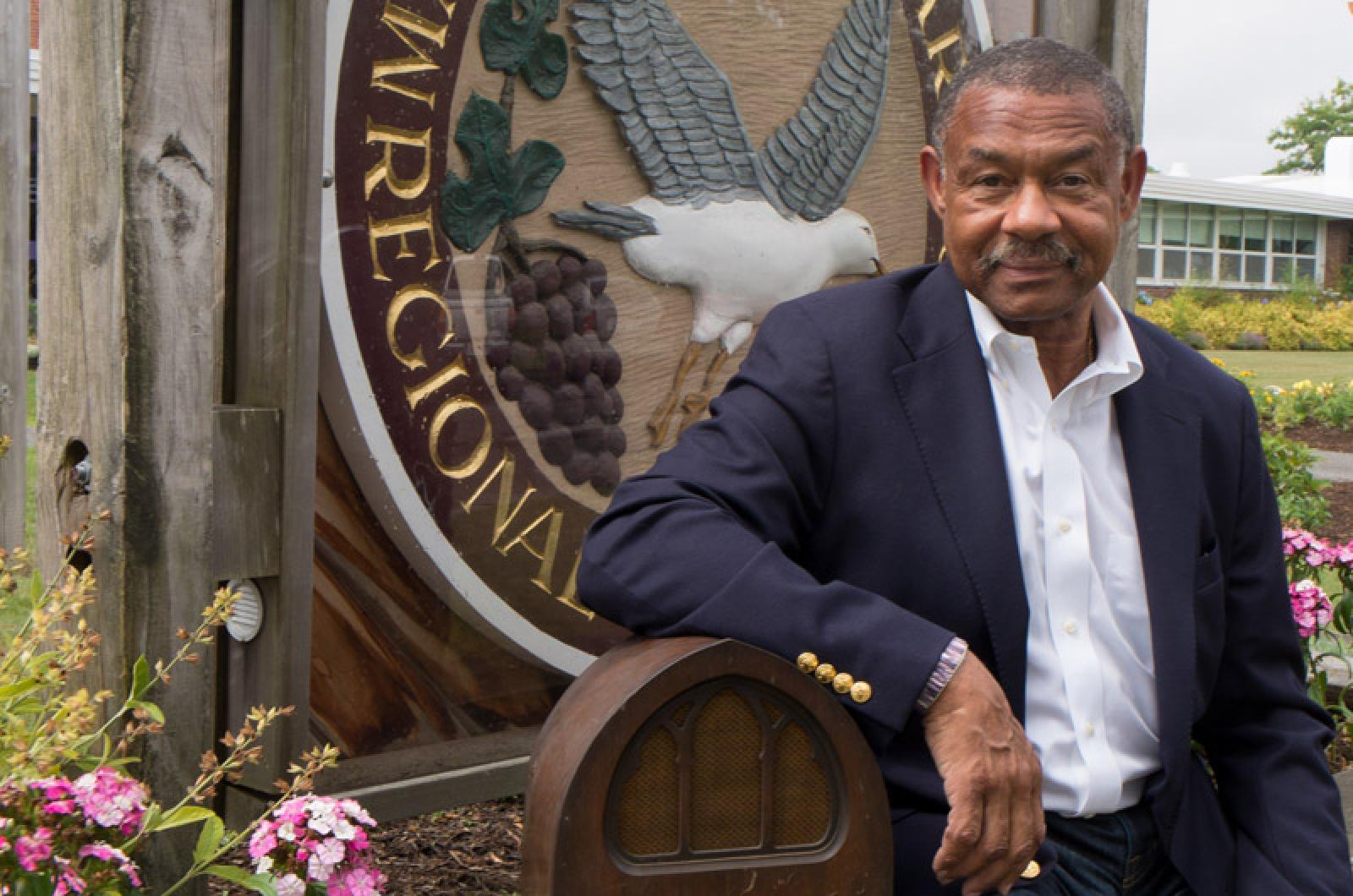Skip Finley sees a future in radio. And that future begins with the students of Martha’s Vineyard Regional High School, who will run a low power radio station out of the school starting in September.
“People still listen to the radio,” said Mr. Finley. “It might be a traditional medium, but it’s certainly not dead.”
Mr. Finley, who also serves as the marketing and sales director for the Vineyard Gazette Media Group, has worked to set up a radio station on the Vineyard as a legacy to an industry he’s been involved with for years. The project has even grown into a part of the high school’s Career Technical Education program, which aims to provide students with the skills they need for real world jobs.
Ty Hobbs, the director of the CTE program at the high school, first heard about the idea for a radio station when Mr. Finley was looking for a location at the school. Immediately the idea to tie it into the larger career training programs the school provides came up.
“This is real hands-on learning,” said Mr. Hobbs. “And radio is definitely a part of that.”
The station will be a chapter of a national organization of low power radio stations that allows smaller local groups to have a voice on the radio. These stations are still on the FM band despite the fact that they are not commercial and must be organized as non-profits. That gave Mr. Finley the original idea to try and utilize the station for the high school.
The station will join other trades such as culinary arts, horticulture and health services as part of the CTE program, expanding the list to seven when the maritime sciences begins next fall.
“We’d like to have a program that focuses more on the liberal arts aspects of things like communications,” Mr. Hobbs said. “It teaches kids not just how to communicate but also how to do so succinctly, especially given modern technology like podcasts or web streaming that forces kids to think how to boil something down and get it across.”
Mr. Finley is still looking for someone to run the actual CTE program for the radio station who can also develop a curriculum and coordinate with the school. In the meantime, the station will start out as an extracurricular club during its first year, before becoming part of the CTE program.
“Nowadays, communication is vastly different from when I started in the business,” Mr. Finley said. “For instance, this station will have a distinct FM presence, but it’s also going to have a very unique digital format.”
The station’s programming will begin with a reggae format, seeking to appeal to what Mr. Finley sees as “average guys” who are working outside. He doesn’t predict a large listenership to begin with, and the students will be able to alter or change the content to broaden the station’s audience if they can come up with a solid business plan and strategy behind it. But one thing that will not change is the music around December.
“During the holidays, we’re always going to play holiday music,” Mr. Finley said. “Just cause why not?”
Mr. Finley also plans to have the students survey community leaders to discover important issues to the public so that communal needs and concerns can be addressed on the station.
Ultimately, the station is mainly meant to provide a life opportunity for high school students. Not only does Mr. Finley believe that the station will help students procure any radio job in the country, but he also plans on using the money the station generates from sponsorships to fund college scholarships for students in communications.
“We’re trying to set up the station as a 501(c)(3) charitable organization,” Mr. Finley explained. “That way people can also make donations for these scholarships.”
Mr. Finley is hopeful about the potential the students can bring to the world of radio.
“We’re just dying to see what these kids come up with,” he said. “And if they just have some fun and pass some time, that’s fine too.”







Comments (9)
Comments
Comment policy »